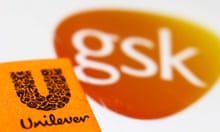One of the world’s largest commercial developers of HIV drugs is working on a treatment that can be injected by patients at home every two to three months by the end of the decade, saving them frequent visits to the clinic.
ViiV Healthcare, a GlaxoSmithKline-controlled joint venture, makes 17 prescription HIV medicines, including the long-acting treatment cabotegravir, which was first approved in the US in January 2021.
Sold as Cabenuva, it has been available on the NHS as a combination treatment with another drug since April last year, and is now injected into the patient’s buttocks via syringes in hospital every two months. This is an alternative to taking a daily tablet to stop the HIV virus attacking the immune system, leading to Aids.
Deborah Waterhouse, the ViiV chief executive, said: “What patients are saying now is: ‘Well, we really love the new medicines you have launched, but can there be a longer period between administration so that we only have to go to the clinic three or four times a year, or can we administer at home?’ That is obviously what we are aiming to deliver and that is powering our growth.”
Cabenuva is an injection that is now approved only for a healthcare professional to administer, usually into the patient’s buttock muscle. The company is developing a new formulation with an autoinjector device that makes it easy and safe for patients to inject the drug themselves at home, most likely under the skin. It hopes to start clinical trials in 2026 and to launch the treatment by 2030, with patients expected to self-inject every two to three months.
Kimberly Smith, the head of research and development at ViiV, said: “We have several products in our portfolio that we are evaluating for potential options for self-administration. It’s a little complicated because you need to have the right medicine, the right volume and you also need to have the right device that works well for patients to be able to deliver. We are committed to doing that.”
At the same time, ViiV is developing a version of cabotegravir as an “ultra-long-acting treatment and prevention” that could be injected every four months, and ultimately every six months by the end of the decade. This is double the concentration of the current drug.
The company expects the four-monthly injection to be available in 2026 for HIV prevention – for people who don’t have HIV but are at high risk because of exposure to the virus, for example in sub-Saharan Africa – and in 2027 for treatment. It plans to present data at a conference in Colorado next March.
GSK’s US rival Gilead is also developing a long-acting injectable HIV treatment that can be given every six months, and reported positive clinical trial data in July.
An estimated 39 million people are living with HIV globally, and there were up to 1.7m new infections last year, many of them women and girls, according to UN Aids.
after newsletter promotion
ViiV also makes dolutegravir, a tablet known as Tivicay that is taken once a day, and was first approved in Europe in 2014. Its patent will expire in five years’ time, which means generic drugmakers will be able to make cheaper copies of the drug.
Analysts worry about the resultant loss of sales to GSK. However, betting on the success of its other, long-acting HIV drugs, GSK upgraded its growth outlook between 2021 and 2026, from mid-single digits to between 6% and 8%, with forecast sales increasing from £6bn to £7bn in 2026.
Waterhouse recalled the “grim days of the 1990s” when people diagnosed with HIV typically had a life expectancy of 18 months. “If you fast forward to today, and due to the advances in treatment, a person living with HIV on an effective treatment can enjoy a healthy and long life, comparable to a person living without HIV,” she said.










